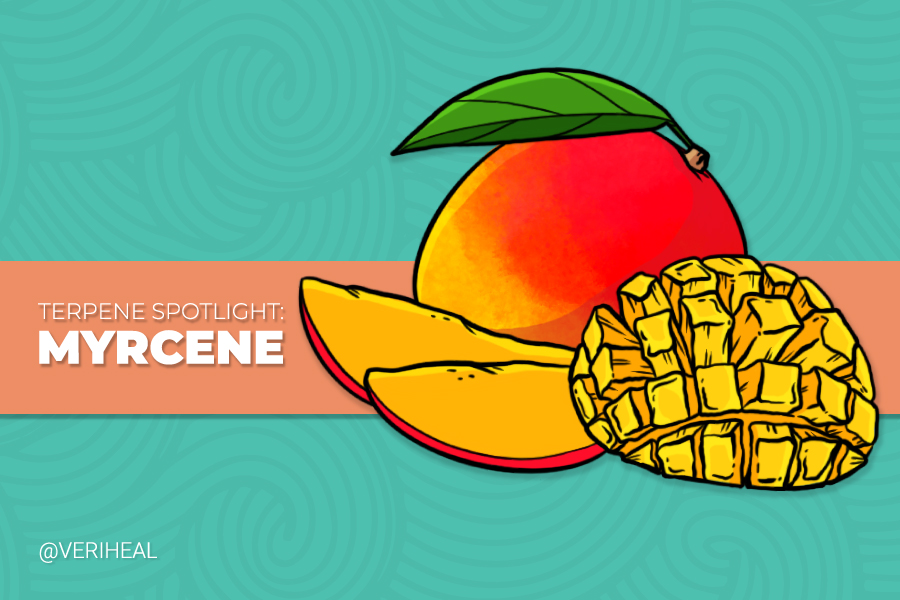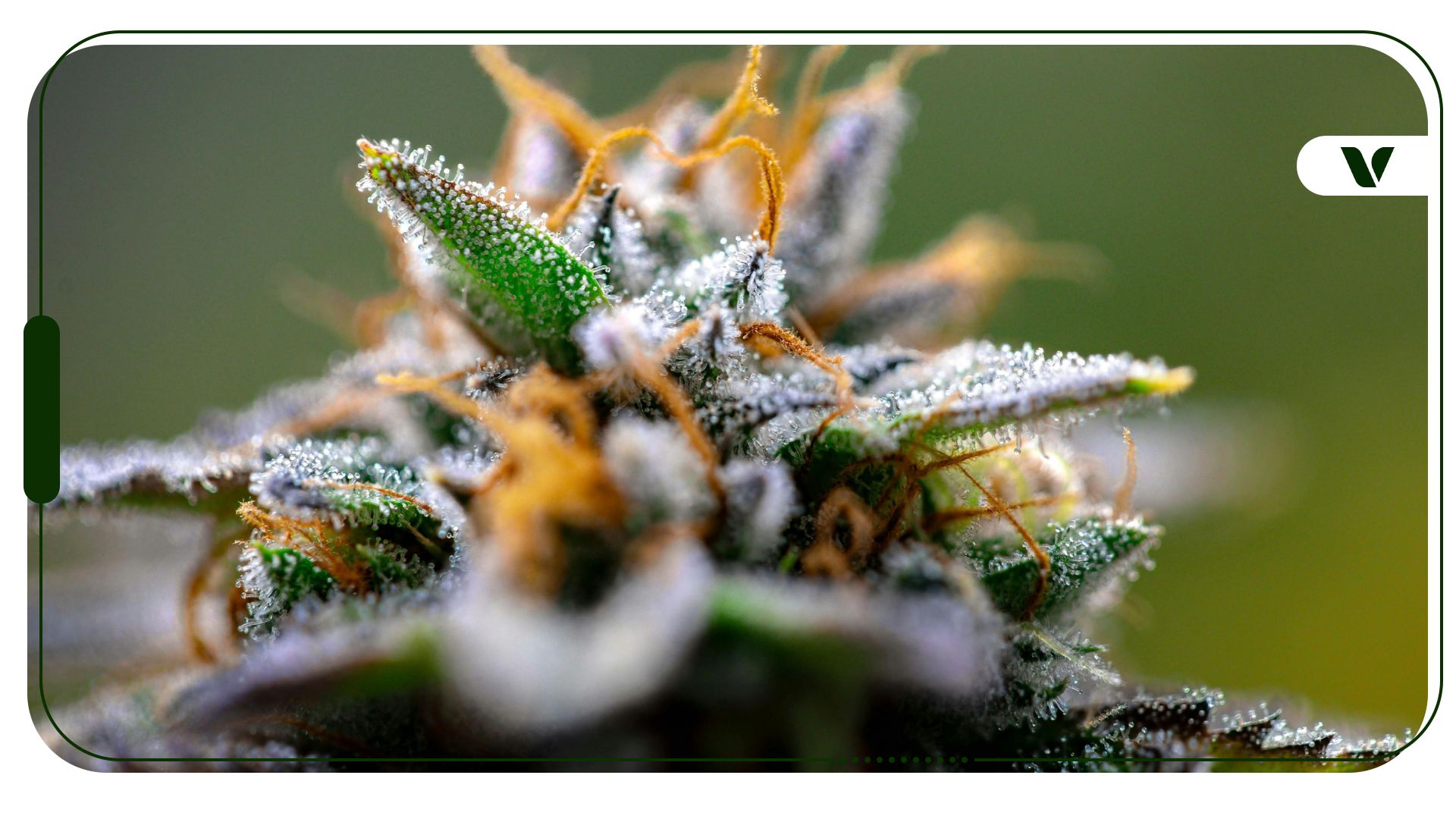Are you looking for the perfect cannabis strain to address your needs? If so, you’re probably weighing the benefits of indica vs. sativa. You’re probably familiar with the sedative effects of indica strains of cannabis and, by contrast, the invigorating and uplifting effects that sativa strains are known for. However, the indica and sativa strategy has proven to be obsolete. Research has shown that its a combination of cannabinoids and terpenes that users should consider.
If you’ve been paying attention to the world of cannabis, you might also be familiar with the subject of terpenes. Terpenes are the primary ingredients we see in essential oils. They are produced by plants to protect against pests and predators alike, and the cannabis plant has over 100 different known terpenes. Terpenes make up the character of the cannabis strain. By choosing a strain with the correct terpenes for your needs, you can vastly affect the experience you end up having.
What is Myrcene?
Myrcene is one of the most common cannabis terpenes out there, but it’s also commonly found in another popular plant—hops. Next time you have a beer in front of you, take a whiff. That spicy smell is coming from myrcene. It’s also found in lemongrass, mango, and thyme.
If you’re a cannabis user, you’ve probably already experienced myrcene. As the most common cannabis terpene, it’s likely to be dominant in any given flower selection. But if you’re choosing your terpenes mindfully, you’ll want to know what you’re getting. It’s always a good idea to find out which terpenes are in the strain you’ve selected and what effects they’re known for.
An important note is that it’s widely believed that you can tell whether you’re dealing with an indica or a sativa strain by looking at the concentration of myrcene. However, science doesn’t back this up. Myrcene concentration appears to have no correlation to whether a strain is indica, sativa, or a hybrid.
The Benefits:
- Anti-inflammatory: It has been theorized that myrcene has pain-relieving properties that work by enhancing the pain-relieving chemicals produced naturally within the human body. However, this has not yet been conclusively proven.
- Antimutagen effects: Antimutagens can counteract and deactivate mutagens. Mutagens, such as radioactive and chemical agents, can cause permanent damage to and change DNA. These effects are a big deal, although their full practical application has not yet been nailed down. What we know is that myrcene can protect against damage to our DNA from external toxins that are produced in fungi and end up in the food we eat. These toxins can cause cancer, so this effect of myrcene has potentially huge ramifications.
It’s surprising since Myrcene is so common in cannabis strains across the board, but we still don’t know nearly enough about this particular terpene. So far, research has focused on the various cannabinoids, such as THC and CBD, without too much attention paid to the terpenes and what they can do. But it seems clear that myrcene has a wealth of untapped potential to offer, and we must hope that future research will be directed toward it in order to uncover what is possible.
The National Institute of Health has issued a call for proposals to study the effects of terpenes. In the meantime, speak with your budtender about what is known, and study up on the various terpenes and what they can do for you!
Author, Share & Comments









